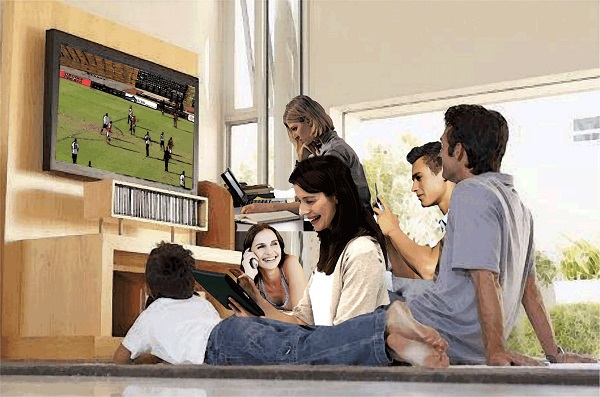Positive Health Online
Your Country

NLP Teaching Social Interaction skills - (Theory of Mind)
listed in nlp, originally published in issue 216 - August 2014
There are serious consequences for a society in which an increasing number of children grow up being able to talk but not to communicate with people.
The number of children learning how to talk, but who are still unable to communicate effectively has increased dramatically over the last 30 years. Some of these children, now adults, are discovering that knowledge of the NLP eye cues and language skills can be useful for helping them to build rapport with others. This can result for some in a chance to build friendships and to fulfil deeper emotional needs.

Communications expert Sioban Boyce has been a head of speech and Language Therapy for Learning disabilities with a Health Authority. She says: “I have worked with 16 year olds who have good language skills and can speak out and say what they want, but their non-verbal reasoning is at pre-five-year old stage.”
She adds: “There are serious consequences for a society in which an increasing number of children grow up being able to talk but not to communicate with people.” The frustration can cause a child to become anxious, which can lead to extreme behaviour patterns and aggression, something which is happening more often in schools.
Since the early 1980s Sioban saw a pattern emerge, initially a small number of children, mainly boys presenting because their verbal understanding was slightly depressed. But it was difficult to tell whether the child couldn’t understand or was choosing not to answer. (This is a significant problem associated with testing children with non-verbal difficulties, especially those on the autistic spectrum.)
By 2010 the numbers had risen substantially and only 80 per cent of her caseload was boys. “We were seeing children who had developed language skills, but they had missed out on a vital stage in understanding. They had not developed the capacity to read other peoples’ facial expressions and body language and other non-verbal cues effectively. These are the cues that help us assess what’s going on in situations.”
Non-verbal communications normally starts before a baby begins to talk and continues to develop alongside verbal language as the child becomes an increasingly proficient speaker. Sioban says: “We are not born with these skills, and until the 1980s they seemed to develop naturally and nobody even thought much about them. However lifestyle changes have meant that some children have to work really hard to acquire non-verbal understanding and avoid the accompanying risk of a life of social isolation and confusion.”
Lifestyle Changes that Limit Children’s Observational Skills
Sixty to ninety per cent of what we say is conveyed via non-verbal means: facial expression, gestures, intonation and reading the context of a situation.
- The forward facing buggy limits a child’s scope to have conversations and observe conversation in full flow;
- Meals are less frequently eaten at the table, traditionally a key place for babies and children to observe and learn to understand the essential non-verbal aspects of conversation;
- TV watching has replaced some social interaction and many children’s programmes consist of cartoon characters rather than real people with expressive faces;
- Children are not always given instruction on where to focus their gaze, i.e. to look at others when they are talking, although in some schools children are being taught face recognition and rapport building skills.
Children need to develop life skills from birth; Sioban’s book Not Just Talking - Helping your baby communicate from day one - is designed for parents, and teaches how to encourage children’s non-verbal skills to develop. Available for £9.99 from www.notjusttalking.co.uk
Lifestyle Changes that Limit Adults’ Observational Skills
- Most people report they are leading busier lives, conversations are shorter, and fewer are face to face.
Conversations are Conducted without Facial Recognition
- Many of us work alone via computer or phone all day. So there is less chance to see others or a need to read body language or recognise facial cues.
- More people read mobile phone texts or listen to music on headsets when travelling, thereby missing a chance to reflect on the environment around us and read people’s emotional, facial, and body language cues. When did you last notice someone because they had an expressive face?
How Confident are You in Your Ability to Build Rapport with Others?
Adults may not discover they have lost some of their ability to read peoples’ facial cues or match rapport until they have a relationship break-up and find themselves on the dating scene again. Some have forgotten how social interaction works and find it easier to move on to the internet dating sites instead.
For most people, rapport building skills can be revived quite quickly. I will be running some half-day introductions to teaching NLP to school children days for parents, carers and teachers in July and August in North West London on a number of topics including building rapport skills. E-mail me if you would like to book a place or if you would like to set up some short interactive training in your Community Hall or neighbourhood. admin@francescoombes.com
Comments:
-
No Article Comments available